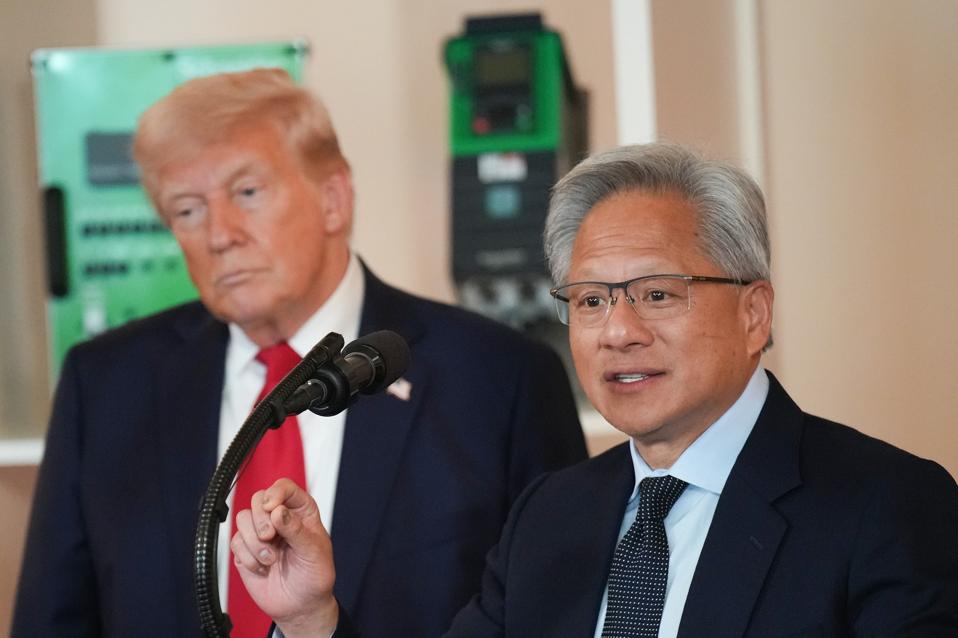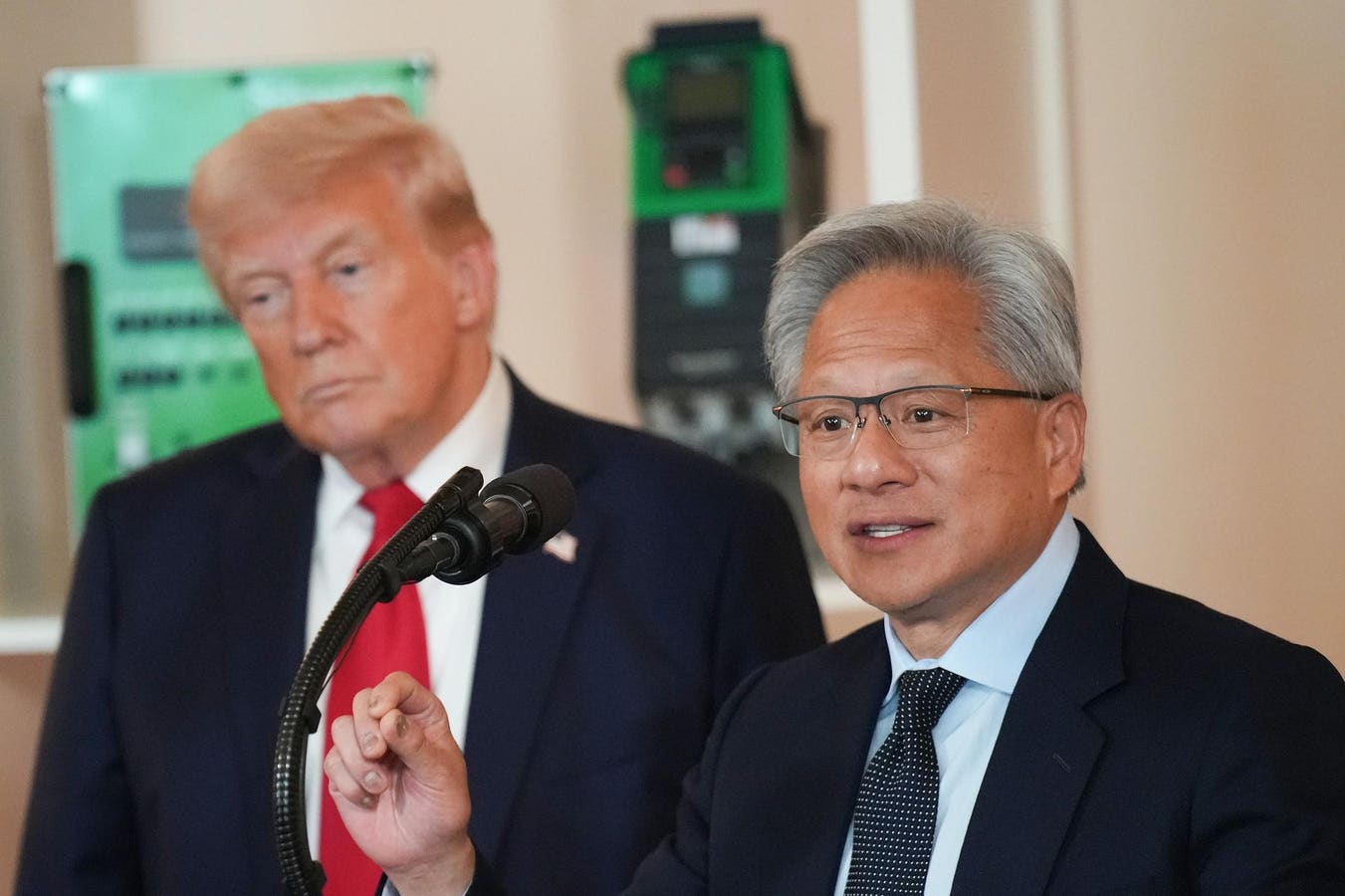
WASHINGTON, DC – APRIL 30: U.S. President Donald Trump (L) listens as Nvidia CEO Jensen Huang speaks in the Cross Hall of the White House during an event on “Investing in America” on April 30, 2025 in Washington, DC. Trump was joined by CEOs to highlight companies and their investments in the United States during the event. (Photo by Andrew Harnik/Getty Images)
Getty Images
Without U.S. investors, there would be little China-based technological advance of the high-end variety to talk about. That’s why it’s both comical and sad when witless U.S. politicians demand that companies with Chinese origins sell themselves to “American” owners. Sorry, but they’re already American owned.
Which helps explain the intense Chinese demand for U.S. technology along with its know-how. China’s tech companies that are largely a creation of U.S. investment are naturally inclined to purchase inputs from companies located in the nation that is the flowerbed of technological innovation.
This is useful to think about with President Trump’s taxes on Nvidia and AMD chip sales into China top of mind. Stating what’s already obvious, it’s mistaken in consideration of Trump’s long expressed desire that the U.S. be #1 in AI. Not only do the best of the best Chinese technological companies want what Nvidia, AMD and other U.S. corporations are offering, the benefits extend beyond sales in a Chinese market that promises to grow exponentially in the coming decades.
Of greater importance considering Trump’s ambitions, there’s quite simply no way for U.S.-based AI and AI adjacent to achieve global #1 status if the best and brightest of U.S. AI can’t avail themselves of labor division with top Chinese AI companies that have achieved their stature via intrepid American investment.
It can’t be said enough that U.S. venture capitalists aren’t in China because its technologists lack potential, rather they’re there because they do. But if Trump’s paranoia about exports to China (along with that of Senators including Elizabeth Warren and Jim Banks) prevails such that exports to China are limited, the U.S.’s most prominent AI companies will lose sales in concert with greatly reduced collaboration that is even more essential to their progress.
Which brings us to what has Trump, Warren and Banks so worried: they believe that exports to China threaten the primacy of U.S. technology. They get it backwards.
That’s because the minute any kind of advanced technology is released into the market, it’s being examined by everyone. Those looking are competitors, including competitors in China. Huang and Nvidia know this intimately. In the words of Huang, stasis means Nvidia “will be commoditized out of business.” Stop and think about this while contemplating Trump’s export tax.
By taxing Nvidia and AMD’s exports he’s not just penalizing sales and progress inherent in cooperation. Equally harmful, Trump is allowing global exposure of their technology while depriving them of extra funds that will enable improvement of it. It’s crippling, as business history makes plain.
Nike co-founder Phil Knight wrote in Shoe Dog that every dollar not nailed down found its way to investment in Nike’s future. Applied to Ford Motor Co., every dollar of profit was directed toward assembly-line improvements enabling the manufacture of cars for “the great multitude.” With Amazon, Jeff Bezos cherished the initial success of Alexa for its sales enabling quite a bit more experimentation in all new products.
Which is a reminder that in taxing Nvidia’s and AMD exports to China, Trump is doing more than hamstringing U.S. efforts to be #1. He’s robbing U.S. businesses of precious capital necessary for them to remain #1.
Trump says a lack of tariff and export tax revenue will render the U.S. a “third world country.” More realistically, third world countries stay that way by doing exactly as Trump is doing.

